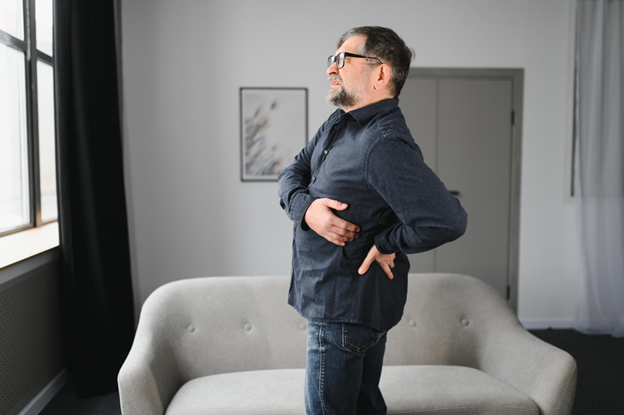Avascular necrosis (AVN) of the hip, also known as osteonecrosis, is a condition where the bone in the hip joint starts to break down because it’s not getting enough blood supply. This lack of blood flow causes the bone to weaken, which can lead to pain, difficulty moving, and even collapse of the joint over time.
What Causes Avascular Necrosis?
There are several reasons why the blood supply to the hip bone might be reduced:
- Injury: A bad fall or accident, like a hip fracture or dislocated hip, can damage blood vessels and stop blood from reaching the bone.
- Long-Term Steroid Use: Taking steroids for a long time (like prednisone) can reduce blood flow to the bones, leading to AVN.
- Heavy Alcohol Use: Drinking too much alcohol for long periods can cause fat to build up in the blood vessels, blocking blood flow to the bones.
- Health Conditions: Certain diseases like lupus, sickle cell disease, and HIV can increase the risk of AVN by affecting blood flow or causing other complications.
- Sometimes the Cause is Unknown: In some cases, there is no clear reason why AVN develops.
Symptoms of Avascular Necrosis
The main symptom of AVN is pain in the hip, which might start as mild discomfort and get worse over time. The pain may be in your groin, thigh, or buttocks, and can be worse when walking or standing. As the condition progresses, it may become harder to move the hip joint, and the pain may continue even when you’re resting.
How is Avascular Necrosis Diagnosed?
Your doctor will ask about your symptoms and medical history, then use tests like X-rays or MRI scans to check the damage to the bone and joint.
Treatment for Avascular Necrosis
Treatment options depend on how severe the condition is:
- Non-Surgical Treatments: These may include pain relief, physical therapy, reducing activity, and medications to help the bone heal.
- Surgery: If the bone is severely damaged, surgery may be needed. In some cases, a hip replacement may be required to relieve pain and restore movement.
What to Do Next?
If you’re experiencing hip pain or think you might have AVN, see your doctor as soon as possible. Early treatment can help slow down the damage and reduce pain, helping you stay active and mobile.



